Brand co-founder Shamil Thakrar talks financial scandals, fictional characters and 1970s Bombay
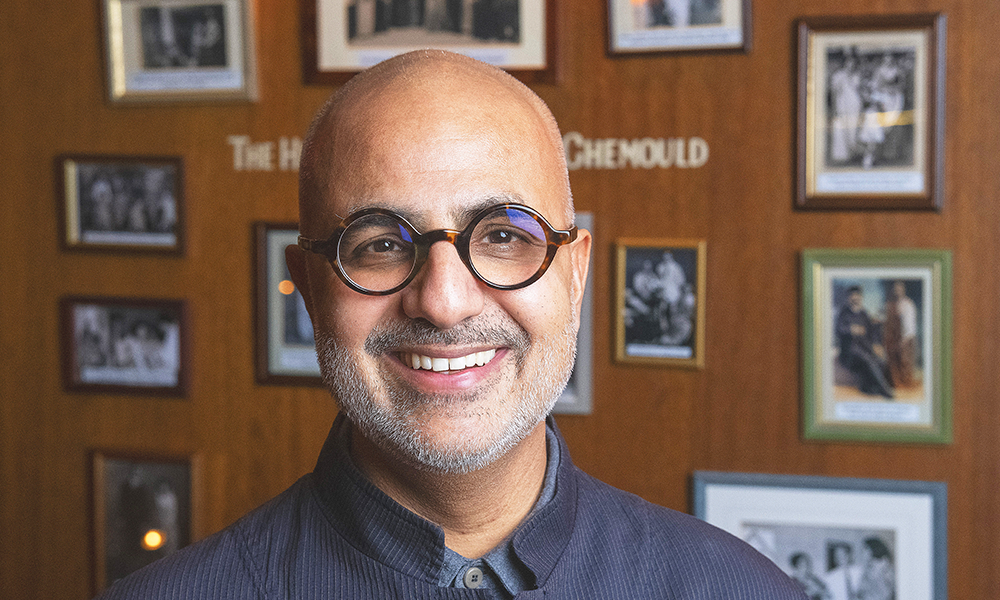
Subscribe to Wharf Life’s weekly newsletter here
Dishoom is different. Over the course of 18 years in journalism, I’ve asked countless people to tell me about their businesses.
Typically they communicate how they came to start their company, what it does and why.
However, when asked to tell me about the opening of Dishoom Canary Wharf, which recently arrived at Wood Wharf, the brand’s co-founder Shamil Thakrar simply said: “It’s a story.”
A simple, but completely serious point. This is no marketing flim flam.
Before the company opens a new restaurant, its founders sit down and develop its back story in detail – a fact that hints at why this is the brand’s first opening in London for five years.
But why not? After all, isn’t everything, to some extent, stories?
The ones we tell ourselves to understand the things around us, the ones we tell others to explain the world to them and the ones they tell us to illuminate their own impressions.
We grow up being read and reading them and seeing and hearing them on all kinds of platforms. Now we are increasingly encouraged to create our own myths via social media.
Dishoom’s approach, which sees each individual cafe fleshed out exactly in line with its narrative, has won the brand significant success.
It’s known for patient lines of eager customers outside its venues and has a reputation as a generous employer that looks after its staff.
You can visit the Canary Wharf branch without knowing any of the back story – nobody will refuse to serve you and the spiced chai will still taste great.
But, so rich is the narrative, that it permeates the whole experience, making it impossible to spend time in the restaurant without feeling its impact, even if that is subconscious.
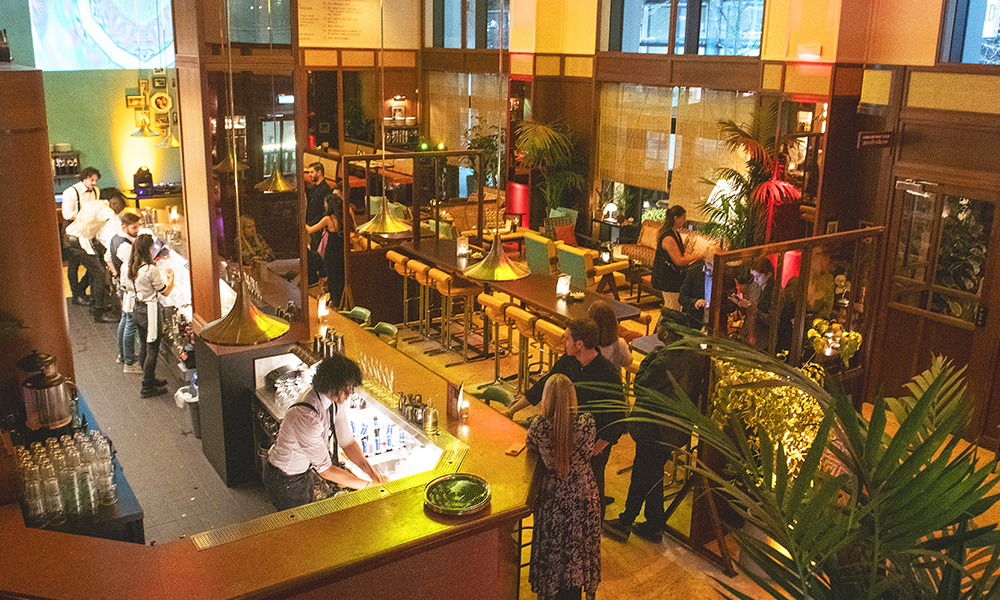
“The story of the Canary Wharf cafe is a bloke – Nauzer – who has been living as a character in my head for quite a few years,” said Shamil. “Now the right place has come up for him.
“He’s a really cool young guy, whose father owns an Irani cafe near the Bombay Stock Exchange.
“He sees some of the high rollers coming in and thinks he wants to be like them. He’s quite a canny kid, so eventually learns how to invest and does quite well for himself.
“Then his family, friends and the local community start asking him to invest on their behalf. He does that and does really well – he makes good money for them and they’re getting wealthier, until one day, he does a bad deal and everything goes south.
“He doesn’t want to tell anyone because he’s so embarrassed and that sense of shame he has, which is an Indian thing, means he can’t face them – so he invents a Ponzi scheme where new investments are used to pay out fake returns to existing investors.
“Everything seems fine, even though it’s built on lies.
“Anyway, he makes the scheme work for a while and, with the winnings, he builds this restaurant – we imagine it’s his, hence the 1970s Bombay feel of the decor.
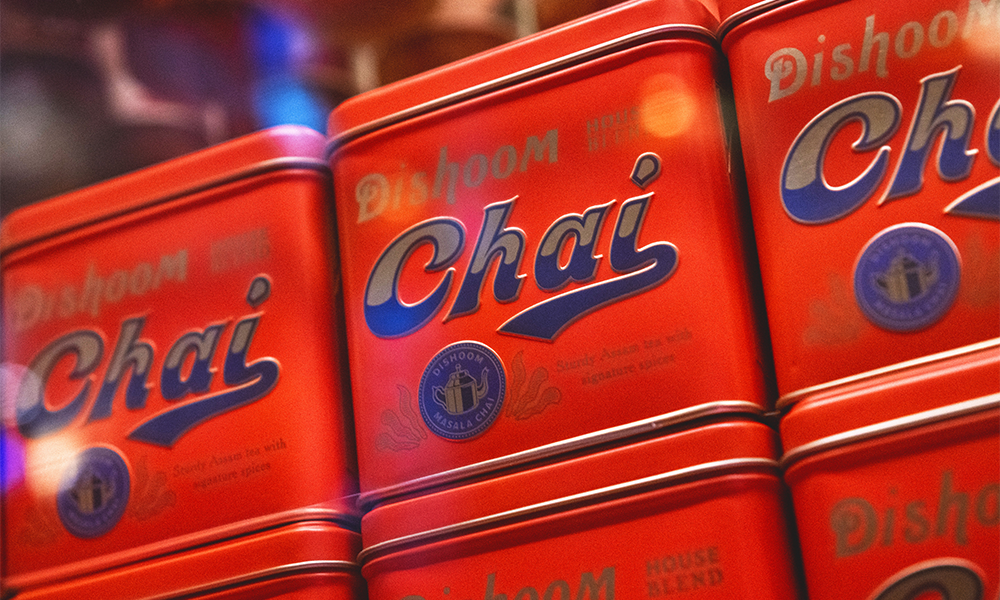
“He invests in art and other cool stuff, and his friends are up-and-coming stars. It’s a place for them.
“In the story we join him one day when he’s stressed out. The phone is ringing, he’s sweating and I imagine him in his room, traumatised because a journalist is on to him and that’s who’s calling – that’s where the story begins.”
Read Chapter One of Nauzer’s story here
Dishoom has now published all three instalments of the hapless investor’s tale on its website – but it’s in the restaurant where things really take shape.
Walk in and you’re immediately hit by the scent of burning incense, the energy of a bustling bar and bright smiles all round as staff guide diners to their tables.
Everywhere there’s activity – it’s not much of a stretch to imagine this as an establishment just over the road from the busy stock exchange in Bombay.
But there’s more. Look deeper and you’ll find house rules on the wall that outlaw Ponzi schemes, historically accurate ads in the menus, coloured porcelain in the washrooms and modernist 1970s decor.
The bar is called the Permit Room, recalling the legal hoops owners had to jump through to serve booze and there’s also a Family Room – an echo of the only spaces women were allowed to access in Irani cafes of old – complete with vintage photos of the owners’ relatives.
Everywhere there’s detail aimed at placing the visitor snugly inside the narrative.
The bar serves a “scandalous” trio of miniature Martinis dubbed The Commander, The Lover and The Wife, inspired by a jealous Parsi naval officer who shot the man his other half was seeing illicitly before turning himself in.
There’s a glint in Shamil’s eyes as we talk – it’s just this sort of material that reflects Dishoom’s flair for the dramatic – ultimately all part of the owners’ ambition that visiting the restaurant should be a memorable experience.
“The most important thing, regardless of whether the restaurant is busy or not, is whether the guests are leaving happy and sated,” said Shamil.
“We have to create the conditions that allow diners to have an experience that’s amazing and that they are going to tell all their friends about.
“The best way to do that is to make sure our team is happy and that’s our job.
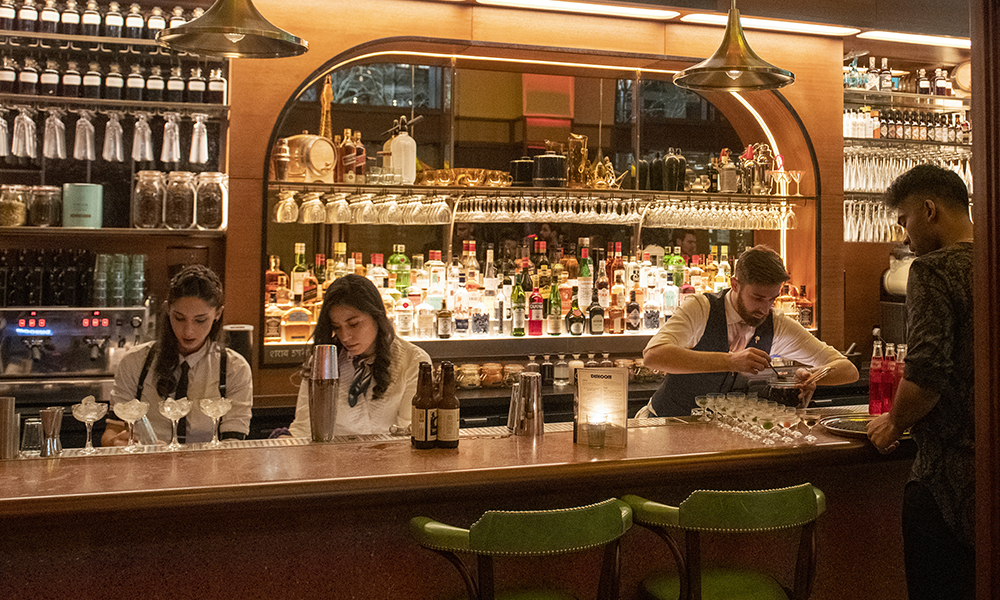
“We have really good people working for us who have an enormous amount of heart and determination in the current economic environment, so the right thing for us to do is look after them.
“Then, collectively we look after our guests and that, hopefully, keeps people coming back.
“We are conscious that sometimes we have a lot of people who stand in line for our food in queues – it’s lovely to have that although sometimes I’m embarrassed by making them wait.
“But we’re providing something people really want, and the key to that is to make sure that our food is really fantastic, our spaces are wonderful and our service is really warm – that is all down to supporting our team.
“That’s something we’ve been thinking about ever since we started the business. Running the company, it’s our responsibility to make sure our staff really love and enjoy the environment they’re working in.
“We like to pay well, but we also make sure we look after the other benefits – the less tangible stuff – so we do regular mental health workshops, for example.
“Then a little while ago, we had the idea for The Bombay Boot Camp where we’d take anyone who stayed with us for five years to the city and show them all the good places.
“We didn’t know whether we would ever take anyone when we started, but this year we’re taking 180 people.
“Some of the places we visit can only fit 15 or 20 people so we don’t quite know how the logistics will work yet, but it’s a trip that money can’t buy because we work really hard to visit places people would never normally go and that everyone who does feels special, welcome and rewarded for the work they do.”
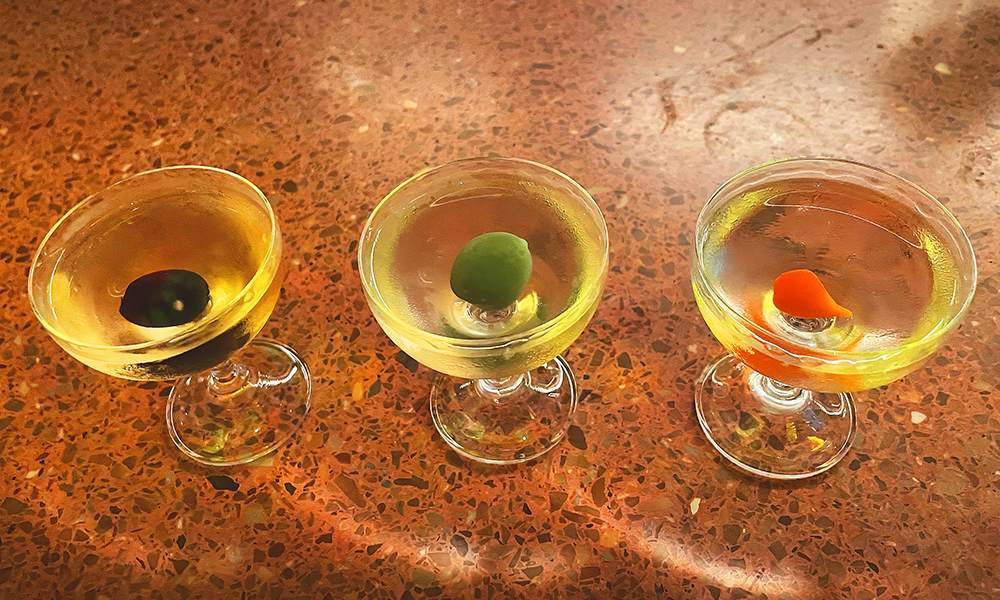
For Wharfers who can’t get over to Mumbai itself, Dishoom serves up an expansive menu of flavours to transport diners in spirit.
“We bring guests into the story and give them food and drink,” said Shamil.
“But the dishes and beverages we serve also have their own stories.
“My cousin Kavi and I now run the business and, when we were setting things up, we came across the heritage of the old Irani cafes, set up by Parsi immigrants from Iran.
“We wanted to pay homage to them, their inclusive ethos and spirit, while at the same time riffing on the stories of Bombay.
“Take Pau Bhaji, for example. It’s mashed up vegetables with buttered Portuguese buns.
“There were colonists from Portugal in Bombay and their influence has become part of the city’s most delicious dish – all those stories are there.
“I think placing food in its cultural context is very important – you come along, eat it with the right music amid the right architecture – I want to give people a real taste of Bombay.
“We, the British, think we know India, and there are a number of cliches – Bollywood, cricket, curry houses, palaces, maharajahs, but I’m not sure that Britain really does know India.
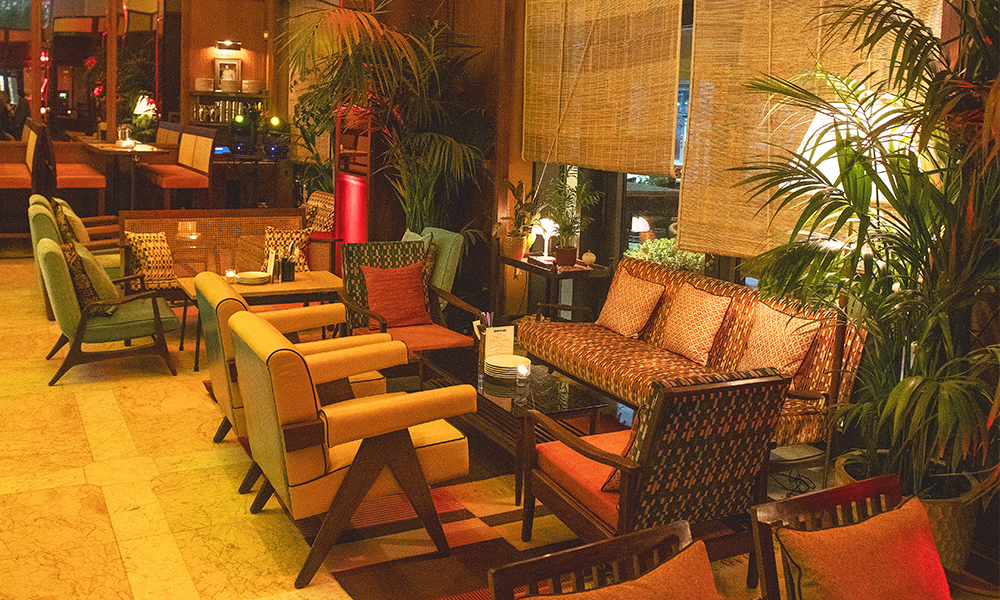
“Do we know about the Bombay Stock Exchange, or that there was a great Art Deco movement post independence that signified liberty and modernity, to get rid of the old gothic architecture?
“On the food side, where we think of India as curry, there’s so much more. We don’t serve that much of what we would call curry today because there are so many other things to be said.
“Canary Wharf isn’t exactly a natural fit for us, but we’re excited to be here.
“The architecture in Wood Wharf, especially, is very cool, and I think we can bring a bit of fun and pizazz to this end of town.
“Then we’ve got a couple more good stories that we’re dreaming up for future openings.”
Dishoom Canary Wharf is open from 8am until at least 11pm on weekdays (midnight on Friday and Saturday and from 9am at weekends.
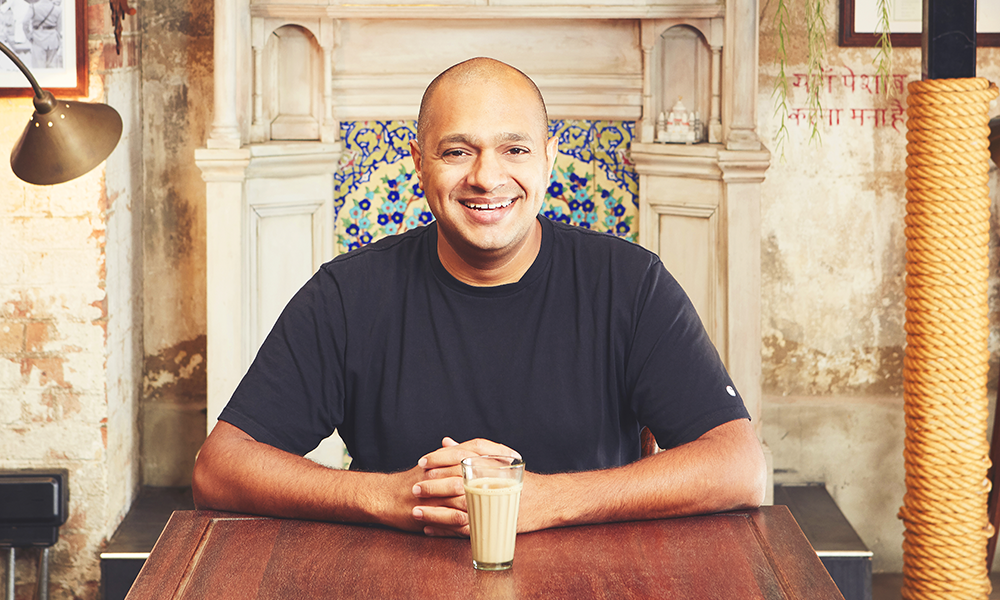
KAVI’S MENU PICKS
With so much on the menu, we went straight to the top and asked Dishoom co-founder Kavi Thakrar to pick out a few of his favourite dishes to help Wharfers make their own decisions:
1. First, the Malai Lobster. this is only available at Canary Wharf. It’s a great dish to share with friends as it feels celebratory, but won’t break the bank. Fresh daily from Billingsgate, it transports me to some of my favourite spots in Bombay to eat fresh seafood.
Malai Lobster – Priced by weight at £7.50 per 100g
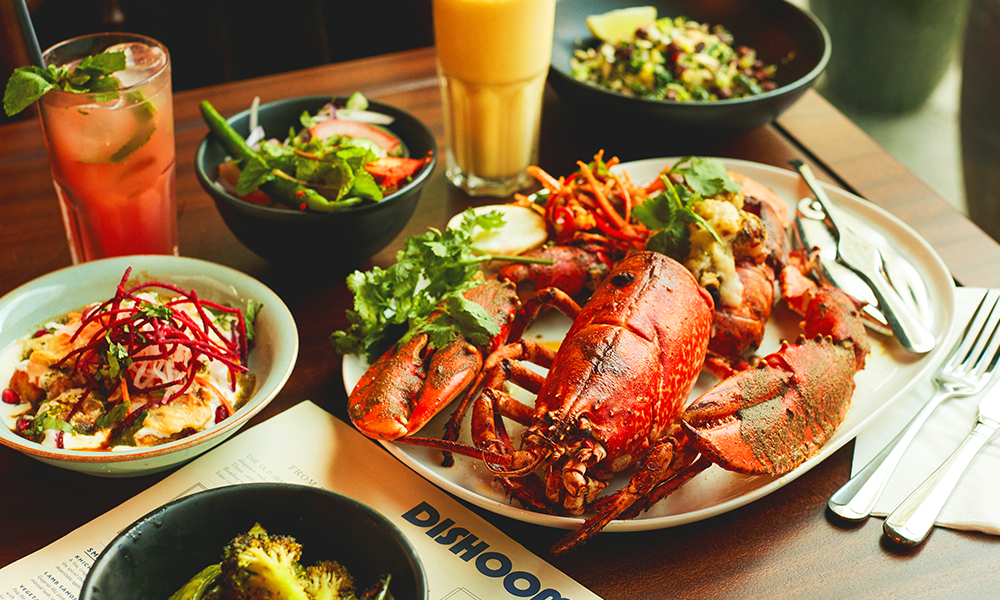
2. Chilli Cheese Toast. We took this off the menu for a while but I’m so happy to see it back. It’s totally delicious with a Dishoom IPA – a sneaky snack when I’m by myself, just like sitting in an Irani Cafe at the end of a long day in south Bombay.
Chilli Cheese Toast – £5.70
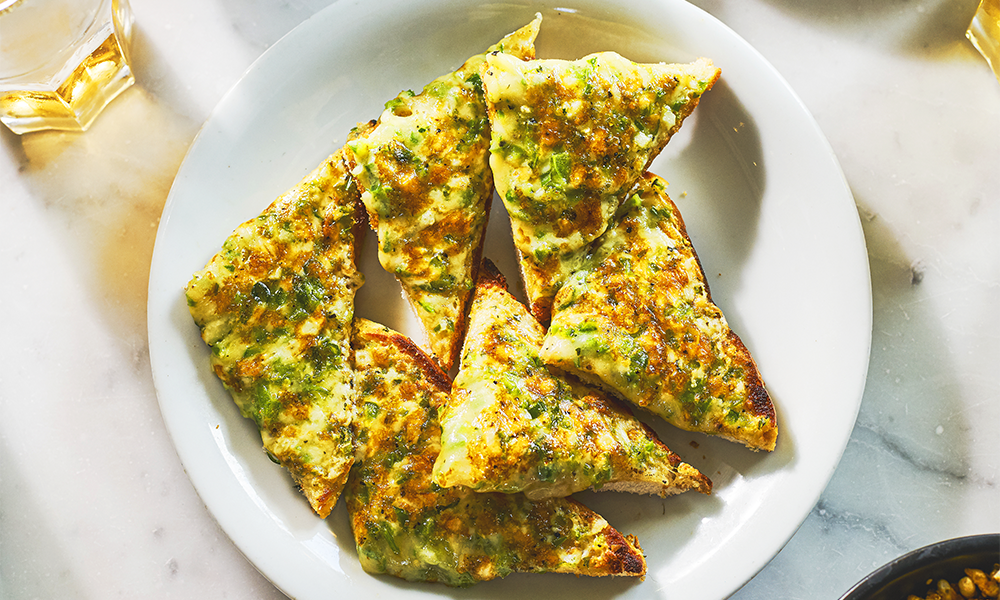
3. And finally, I really love our Double Bacon And Egg Naan Roll. It is a great match of salty, sweet, a little heat and then the richness from the egg. I love having it with a house chai if I start my day at Dishoom
Double Bacon & Egg Naan Roll – £11.60
Read more: How Clays’ new bar has Canary Wharf in its sights
Read Wharf Life’s e-edition here
Subscribe to Wharf Life’s weekly newsletter here
- Jon Massey is co-founder and editorial director of Wharf Life and writes about a wide range of subjects in Canary Wharf, Docklands and east London - contact via jon.massey@wharf-life.com



